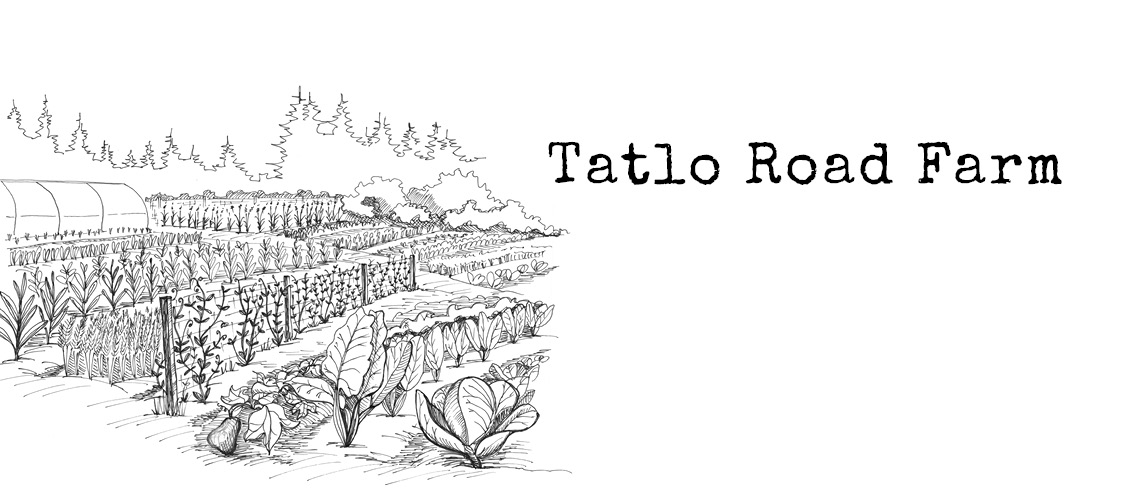Farm Labour
Every January we start out the year with organizing our crew, by hiring 2-3 farm workers for the coming season. These positions are temporary (6 months) and low paying (in the realm of minimum wage), and we're always amazed by the number of qualified applicants. By that I mean generally ambitious, motivated young people with experience and university degrees, both farming-related or otherwise.
This interest in farming among the applicants is not really a surprise to us. These young people are drawn to agriculture for the same reasons we were; working outdoors, working with your hands, working in a way that is beneficial to the environment and local community- not to mention you get fit, get a tan (with albeit less than desirable tan lines), and you eat amazingly well! But another reason I believe we've had so many applicants is because we are offering a wage. It's not a good wage, but it is a wage, which is something many small-scale farms cannot afford to offer.
I don't mean this as a criticism of small-scale farms, I mean this as a criticism of a food system that makes it very difficult for small-scale farmers to pay their labour a decent wage (sometimes farmers can't even pay themselves a decent wage). It is common for small-scale farms to rely on volunteers or unpaid apprentices to get the hard work of producing food done. This is the same system that we trained in. In fact, I won't deny that there is a "got to put in your time" attitude among some farmers who also came up apprenticing and working for low to no wages. As the average age of farmers in BC continues to rise, there is no denying that we need young people to be entering this profession. So I am asking this question of society, not of other farmers: how are these energetic and inspired new farmers supposed to save up for that down payment or for that first piece of equipment if they're not even making minimum wage while they train and gain experience while working on other farms along the way?
One of our past employees described to me an opportunity he was offered to work on another farm. Again, the pay was not high, but the expectations were. He would be working 50+ hours a week for a nominal monthly stipend. The farm would be supplying fresh vegetables to high-end restaurants in Vancouver. My worker pointed out that he didn't feel all that great about working so hard for so little, just so a stranger in Vancouver might enjoy a delicious local meal for a slightly lower price. It's a shame that most farm workers could never actually afford to eat in the restaurants that their farms supply.
There is much we can do. I would advocate all of the following: formalized apprenticeships on farms, where the government subsidizes the trainee (just as they do for various trades); grants for new farmers starting up (just like in Quebec where new farmers can qualify for up to $40,000 in grants); student loan forgiveness for new farmers just as certain public sector employees receive (farming is one heck of a public service too!); and a general awareness campaign about all those who grow our food- not just the farm owners, but the farm workers who are integral to our local food system!
Our hope is that we are able to pay our workers more and more with the coming years- enough that they will stick around and come back each season. Enough that they can save, so that one day when they're ready they can buy their own farm, and one day when we're ready to retire there's a young farmer both ready and able to actually buy us out.
